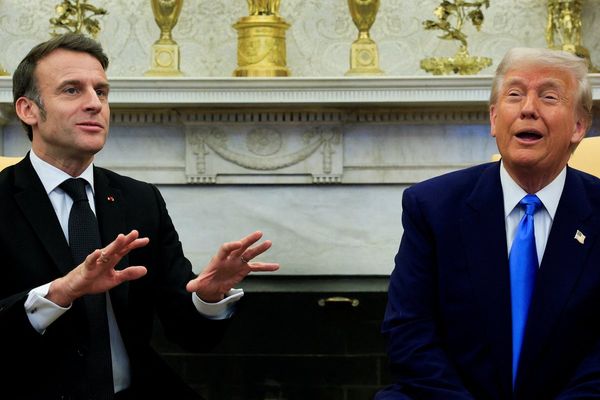The Bank of England has again been forced to intervene to restore orderly market conditions in Britain after the chaos caused by Kwasi Kwarteng’s mini-Budget.
It announced at 7am that it would widen the scope of its daily gilt purchase operations to include the buying of index-linked gilts. An index-linked gilt is a Government bond with the interest rate on it linked to inflation.
It said: “These additional operations will act as a further backstop to restore orderly market conditions by temporarily absorbing selling of index-linked gilts in excess of market intermediation capacity.
“As with the conventional gilt purchase operations, these additional index-linked gilt purchases will be time-limited and fully indemnified by HM Treasury.”
The move came as the Pound dipped slightly in overnight trade and the yields on long-term Government gilts were close to levels reached in the mayhem after the Chancellor’s mini-Budget on September 23.
But Liz Truss remains “committed” to the growth measures set outby the Chancellor despite the latest emergency intervention by the Bank of England, Downing Street has said.
"The Prime Minister remains confident that the measures set out will deliver growth in the economy,” her official spokesman said.
Amid the turmoil, Deputy Prime Minister Therese Coffey insisted pensions are safe despite the Bank of England's warning of a "material risk to UK financial stability".
She told BBC Breakfast: "I'm absolutely confident pensions are safe, the Bank of England is independent and undertaking its role in trying to bring some stability, which it had done.
"I'm not aware of the details of exactly what's happened this morning. The short briefing message I've had from Treasury is that it's a technical financial stability."
Mr Kwarteng’s fiscal statement last month sent the cost of mortgages rising, with the average two-year fixed rate now well over six per cent.
Ms Truss and the Chancellor were forced by a revolt by Tory MPs to ditch their plan to axe the 45p top rate of tax, and face another rebellion if they try to link a rise in benefits with earnings rather than inflation.
But even after this 45p rate move, they had still announced £43 billion of unfunded tax cuts, with a £72 billion borrowing splurge alongside the £60 billion energy bills support package, which has been blamed for causing the Pound to nosedive and sparking turmoil in the markets.
Mr Kwarteng is due at the end of the month to publish a new fiscal statement, explaining how he will fund the tax cuts, with the prospect of major reductions in public spending.
The Institute for Fiscal Studies said he will have to find spending cuts of more than £60 billion if he is to meet his target to get the public finances back under control.
The highly-respected think tank said it was not possible to deliver cuts on that scale through efficiency savings and “trimming the fat” and that it would require major cuts to public services.
IFS director Paul Johnson tweeted: “Try as hard as we can, given plausible forecasts, we can’t see how to get public finances on a sustainable path without big, painful spending cuts or a reversal of £43bn tax cuts just announced. Chancellor has a big job to reassure markets his mini budget spooked so badly.”
At the same time analysts said failure to come up with a credible plan that convinces the markets the Government is committed to reducing its debt mountain could result in a worse crisis than 1976, when the Labour government was forced to seek a bailout from the International Monetary Fund.
They warned that rising interest rates as the Bank of England seeks to curb spiralling inflation were likely to result in a “bruising” increase in unemployment.
In its “green budget” report ahead of Mr Kwarteng’s statement, the IFS said Government borrowing now looked set to hit almost £200 billion this year - around double the £99 billion that was forecast at the time of the last budget in March.
Meanwhile an analysis by the investment bank Citi forecast that the economy is set to grow by an average of just 0.8 per cent a year for the next five years - far short of the 2.5 per cent “trend” rate of growth the Chancellor has said he wants to achieve.
The IFS said that on that basis, it would require a “fiscal tightening” of £62 billion in 2026-27 to stabilise debt levels - so even reversing all Mr Kwarteng’s mini-budget tax cuts would not be enough.
Even if growth were to pick up by 0.25 per cent a year - described by the IFS as a “big increase” - the Chancellor would still have to find cuts of £40 billion.







